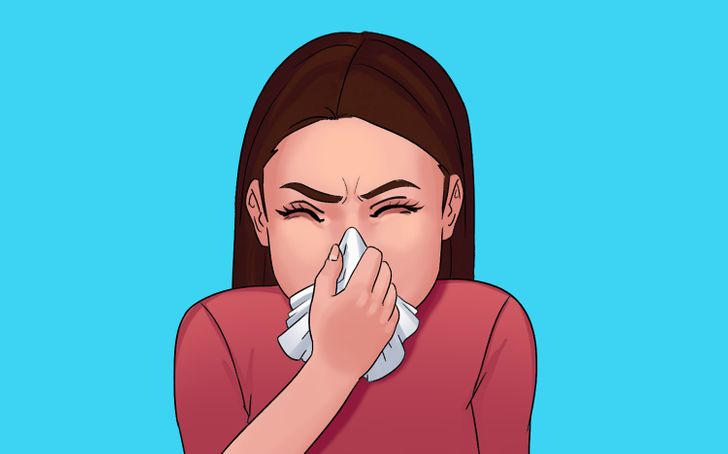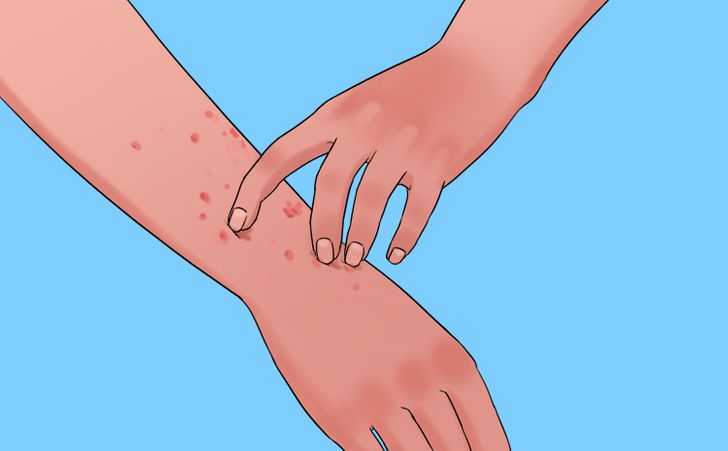Remember that food intolerance and food allergies are not the same. Generally, food intolerance symptoms are not fatal, but they can still be quite unpleasant. Sometimes the symptoms of food intolerance can be so mild that you don’t even think you have an intolerance.
But once you figure it out and simply cut down on the number of foods that bother you, you may never have that unpleasant feeling again. We’ve put together a list of the most common types of food intolerances and their typical symptoms.
There are some common signs that may indicate that you may be suffering from food intolerance.
- Abdominal pain
- Swelling
- Diarrhea
- Gas
- fast heartbeat
- Anxiety
- Insomnia
- nervousness
- restlessness
- stuffy nose and more
It’s important to find out which types of foods are most likely to cause a nuisance, which is why we created this selection. Let’s take a closer look!
Most Common Food Intolerances
Caffeine

If you think that coffee is the only product that contains caffeine, try to stop drinking coffee and you will find that this is not true. Caffeine can also be found in tea, soda, energy drinks, and chocolate. Even green or white teas contain some caffeine.
Common symptoms:
- fast heartbeat
- Anxiety
- Insomnia
- nervousness
- restlessness
If you think you may have a caffeine intolerance, limit the number of cups of tea and coffee you drink or drink decaffeinated beverages.
Salicylates

Don’t worry if the word “salicylates” sounds like something you saw in the lab in your science class; Salicylates are actually natural chemicals that plants produce as a defense against insects and disease. It can be found in a wide variety of foods such as fruits, vegetables, tea, coffee, spices, nuts, and honey.
Common symptoms:
- Stuffy nose
- Asthma
- Diarrhea
- Gut inflammation (colitis)
- Urticaria
Although it is impossible to completely eliminate salicylates from your diet, avoiding salicylate-rich foods such as spices, coffee, raisins, and oranges can help relieve symptoms of salicylate intolerance.
Amines

Another chemical called amines is a substance that forms naturally during the storage and fermentation of food. There are many types of amines and they can be found in citrus fruits, chocolate, smoked fish, cold cuts, aged cheeses, vinegar, beer, and wine.
Common symptoms:
- redness of the skin
- Headaches
- Urticaria
- Sting
- Anxiety
- Stomach ache
- Diarrhea
- low blood pressure
If you think you may have an intolerance to amines, try eliminating foods that are high in this aggressive type of amine. Taking an antihistamine may also be an option.
FODMAPs

FODMAPs are a group of short-chain carbohydrates found in many foods that are not well absorbed by the digestive system. Bacteria break down FODMAPs and produce gases that cause bloating and discomfort.
Common symptoms:
- Irritable bowel syndrome
- Swelling
- Diarrhea
- Gas
- Abdominal pain
- Constipation
If you think you may have an intolerance to FODMAPs, try eliminating foods rich in these components.
Gluten

Gluten intolerance is more common than we probably think. The study estimates that gluten intolerance affects 0.5-13% of the entire population. Gluten is a protein found in wheat, barley, rye, and triticale.
Common symptoms:
- Abdominal pain
- Swelling
- Headaches
- Urticaria
If you think you may have a gluten intolerance, avoid bread, pasta, cereals, beer, cookies, sauces, spices, and sauces (especially soy sauce).
Fructose

Fructose is a type of sugar found in fruits, vegetables, and honey. For some people, fructose is not absorbed efficiently, causing discomfort.
Common symptoms:
- Reflux
- Gas
- Nausea
- Swelling
If you think you may have fructose intolerance, avoid or eliminate soda, honey, fruit juices, corn syrup, and certain fruits such as apples, watermelons, cherries, and pears; and certain vegetables like sugar peas.
Have you ever experienced any kind of food intolerance? Let us know what you think in the comments below.


